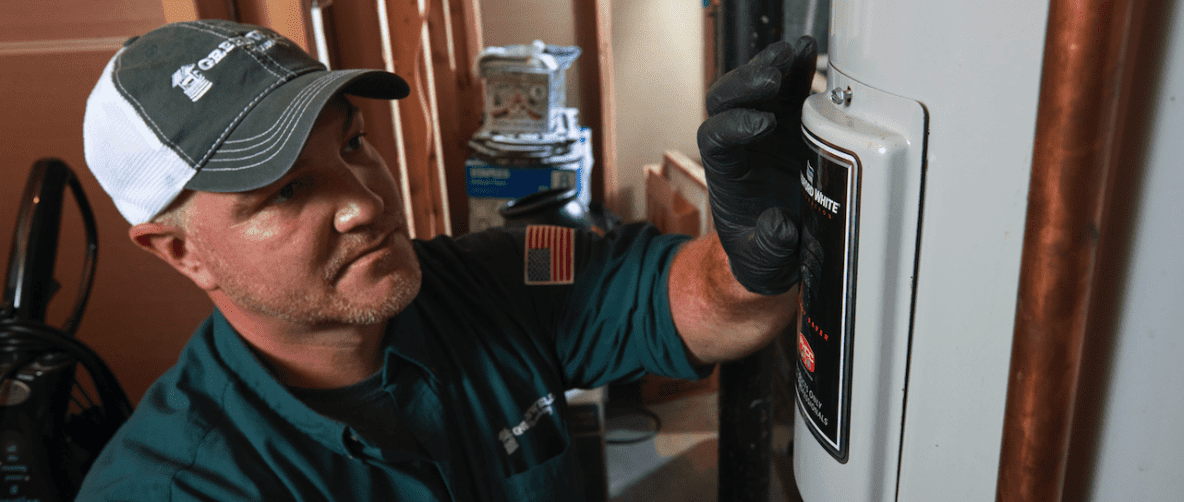Saving with an Energy Efficient Water Heater

Heating water for use in your home makes up about 18 percent of your energy bill, according to the US Department of Energy, so investing in a more energy-efficient water heater can save you some real money. The drawback is that it can cost you a little more upfront, whether that’s the cost of a more energy-efficient replacement for your existing system, or a total upgrade to a more advanced system. Is it worth it, in the long run? To help you make that decision, here is everything you need to know about water heaters: why they lose energy, how energy-efficient systems combat energy loss, and how much money the investment will ultimately save you.
How Do Water Heaters Lose Energy?
Traditional storage tank water heaters bleed energy, especially older ones. There are a variety of ways this happens.
First of all, many older tank-style heaters aren’t as well insulated, allowing them to lose heat while the water is just sitting in the tank. In addition, many have inefficient heaters that lose energy just by not converting as much of it into heat. Newer, more energy-efficient tank-style water heaters, such as those marked with the ENERGY STAR logo, convert a higher percentage of energy into heat and lose less heat through standby. The result is a more efficient water heater, but of course, the overall design of the system still wastes energy by keeping that hot water ready for use at all times.
The last way that water heaters lose energy is via distribution. This means that as hot water travels through the pipes to get to you, it’s losing heat along the way. How much heat it loses depends on how well insulated the pipes are, and how far it has to go to get to you at the shower or the kitchen sink. This is true of any hot water system, whether you have a storage water heater or a tankless water heater.
How Are Energy Efficient Water Heaters Different?
If you want a more energy-efficient water heater, there are a number of different options. The first and easiest is of course to get a more energy-efficient version of the traditional storage water heater. While these still use energy to keep hot water at the ready all the time, they are designed to minimize energy loss with more efficient heaters and better insulation. Some ultra-high-efficiency water heaters even use the properties of condensation to minimize the heat lost through exhaust gases.
For all of the higher efficiency of these storage water heaters, though, they still lose a lot of heat through standby. That’s why tankless or on-demand water heaters have become a favorite option of those who are truly looking to minimize their energy use. Tankless water heaters only heat the water when it’s being used. This already makes them less of an energy hog, but the more efficient versions will offer better heaters, as well.
How Much Can You Save?
How much money you can save depends on what kind of system you spring for. An ENERGY STAR storage water heater is 8 percent more efficient, but you can save as much as $3,500 over the life of the heater, especially if you spring for one with a heat pump. If you really want to save money, though, consider a tankless hot water system. According to the Department of Energy, tankless hot water will save you anywhere from 8 to 34 percent on your hot water bills, depending on how much water your household uses. An ENERGY STAR tankless water heater is an additional 9 percent more efficient than a standard model. According to Bankrate, that can add up to a savings of more than $100 per year.
How to Enjoy Hot Savings
If you’re ready to do your part for the environment and save a little money in the process, it’s time to check into upgrading to an energy-efficient water heater. Call your neighborhood plumber, Greenwell Plumbing, today and one of our experienced technicians will help you find the hot water that is best for your budget, your household, and your energy goals.

